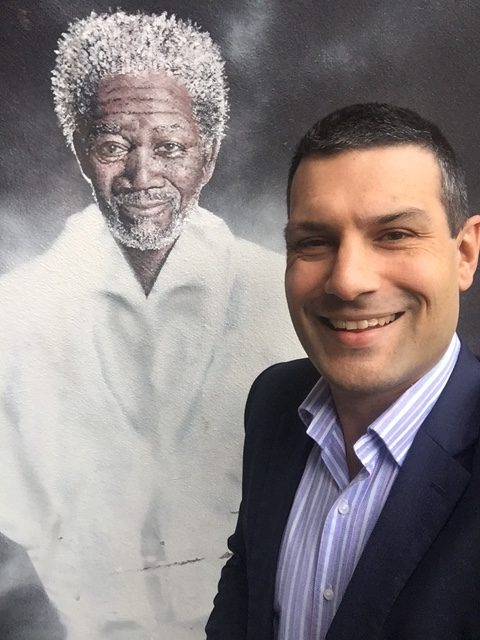What is a Buy-Sell Agreement, and Why do I need one? In Blackboard Fridays Episode 132, Robert talks about Legals. Need this implemented into your business? Talk to the international business advisor who can do exactly that – Contact Jacob, Learn More, or Subscribe for Updates.
Who is Jacob Aldridge, Business Coach?
“The smart and quirky advisor who gets sh!t done in business.” Back independent since 2019.
Since April 2006, I’ve been an international business advisor providing bespoke solutions for privately-owned businesses with 12-96 employees.
At this stage you have proven your business model, but you’re struggling to turn aspirations into day-to-day reality. You are still responsible for all 28 areas of your business, but you don’t have the time or budget to hire 28 different experts.
You need 1 person you can trust who can show you how everything in your business is connected, and which areas to prioritise first.
That’s me.
Learn more here. Or Let’s chat.
Transcript
Hi I’m Rob Shepley, Director of businessDEPOT Legal.
What I wanted to talk to you about today is business succession, in particular, what happens if you’re in business partnership with someone, and they get hit by a bus. So two outcomes, either person who gets hit by the bus and dies, which is bad, or they get hit by the bus and don’t die, but they can’t come back to work which is bad too.
The way this would normally work, the default position is that, if the business partner dies, for example, and it’s a in the same example, it’s a 50-50 ownership business, that person can’t come to work anymore and contribute, but the ownership remains the same. The outcome is that you’ve got now one business partner who’s contributing to the business. But still the bottom lines being split 50/50. So not really ideal.
Same situation as well, if we’re talking about the person becoming disabled, or if they have some other terrible illness. The reality is if they can’t come in and contribute to the business, then we have a problem here.
If you have a shareholders agreement or partnership agreement, depending on what your structure is, it might have a mechanism in there to say that look, “If this happens, then the continuing partner has an option to buy out the person who’s suffered the event.
Now, that kind of works, but it has two practical problems, the first one is being able to finance that buyer. The nature of these events are that it’s entirely unpredictable. It’s not something you can necessarily plan for in that respect.
Also, there’s a timing issue in terms of a continuing partner might be pretty keen to buy the other partner out. At the same time, the estate’s probably pretty keen as well. Whether they’ve got the actual ability to actually finance that at that time can be tricky.
The second really important issue that can happen is around valuation. You might have had a reasonable idea of what the business was worth in the ordinary cause.
When the two partners were in there and working, all of a sudden if one contributing partner is now gone, then certainly the continuing partner probably has a different view and more pessimistic view of what the value is moving forward.
You know the estate of the person who has died, you know, probably also still wants to maintain the existing value. It’s very easy to have disputes with that. You’ve got to remember as well is that, in that situation by so the default position is that all of a sudden, you’re in business with the spouse of your business partner. Really not ideal.
So depending on the circumstances, that spouse may not have the skills or experience or even want to be in the business with you. It really is quite a significant problem.
There is actually a pretty simple solution that you can put in place to deal with this. You know, someone being hit by the bus example. You can’t stop the bus happening, but you can deal with it in a way that gives certainty to both sides. That’s called an insurance funded by cell arrangement.
The way it works is each owner in the business takes out a life insurance policy, may be also a TPD, which is Total Permanent Disablement policy, may be critical illness as well, depending on what sort of particular events we want to cover.
Each person takes out a policy for a value that is broadly reflective of what they think people will degrade value for their ownership interest in the business. The business generally pays for that policy.
What happens is that in the event one of those events occur, then in the example of a partner dying, then their estate claims under the insurance policy, they get paid under the policy and then they’re required to transfer their equity in the business to the continuing partner.
The end outcome is the continuing partner now owns 100% of the business, the deceased partners estate has been paid a fair value for what the business is worth. It’s done in a way where the, you know, didn’t need to worry about getting finance or anything like that. It can make that process really smooth. That is a really good outcome.
It’s it’s really important in my view for businesses that are closely held. So, if you’ve got two, three or four partners really important, also, if you’ve got ownership interests that are disproportionate, so if you’ve got a 80% shareholder and a 20% shareholder, then the the 80% person is someone who dies or comes disabled, then you know, that’s a really big problem for the 20% person.
The same situation is that it can certainly apply in more widely held companies as well. It’s just a way of trying to create a process and certainty for if something like this occurs. The sort of costs in terms of ongoing as to how this works, so obviously their insurance policies that need to be taken out. That’ll vary depending on how much you’re trying to take out insurance and your own individual circumstances.
You need to get a lawyer to help you do a buy-sell agreement, but it’s really not a complicated exercise. If this is something that you’re worried about, or if you’d like to discuss more, please feel free to get in touch with us at businessDEPOT Legal.
Next Steps
Want to learn more about how this can apply to your business? It costs nothing to chat:
- Email me jacob@jacobaldridge.com (I read them all)
- Call, Text, or WhatsApp me +61 427 151 181
- Or just Subscribe https://jacobaldridge.com/about/subscribe-to-jacob-aldridge-com/ to stay in touch


